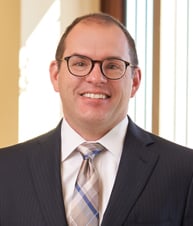A weekly summary of the precedential patent-related opinions issued by the Court of Appeals for the Federal Circuit and the opinions designated precedential or informative by the Patent Trial and Appeal Board.
CyWee Group Ltd. v. Google LLC, et al., Nos. 2020-1565, -1567 (Fed. Cir. (PTAB) Feb. 8, 2023). Opinion by Prost, joined by Taranto and Chen.
Addressing two IPRs filed by Google, the Patent Trial and Appeal Board issued final written decisions concluding that the challenged claims in two CyWee patents were unpatentable for obviousness. CyWee appealed the Board’s decisions, challenging the merits and additionally arguing that the appointment of administrative patent judges (APJs) was unconstitutional in view of the Appointments Clause in the Constitution. The court rejected CyWee’s challenges and issued its mandate.
Shortly after the mandate, the Supreme Court held in Arthrex that APJs’ power to render final patentability decisions unreviewable by an accountable principal officer gave rise to an Appointments Clause violation. The Federal Circuit then recalled its mandate and remanded to allow CyWee the opportunity to request Director rehearing. On remand, the Director referred the rehearing request to the Commissioner for Patents who denied rehearing. CyWee then filed amended notices of appeal.
The Federal Circuit affirmed, rejecting CyWee’s challenges under the Appointments Clause, the Federal Vacancies Reform Act, and the Constitution’s separation of powers. CyWee also argued that the Board’s institution decisions and final written decisions were untimely. CyWee argued that “not only must the Director be able to review institution decisions and final written decisions, she also must perform (or have the opportunity to perform) such a review within the statutory deadlines applicable to those decisions.”
The Federal Circuit found this argument “meritless,” ruling that “the statutory provisions setting specific deadlines for institution decisions and final written decisions say nothing of deadlines for any further Director review of those decisions.” The Federal Circuit continued: “If the Board makes that determination within the § 314(b) deadline [for an institution decision]—and here, it did—the institution decision is timely, notwithstanding the possibility that the Director may later revisit that decision.” The court also explained that the Director may adjust the one-year deadline for issuing a final written decision under certain circumstances. Here, “the Board’s final written decisions were timely—again, notwithstanding the possibility that the Director could have later reviewed those decisions.”
Xerox Corp., et al. v. Bytemark, Inc., No. IPR2022-00624 (Aug. 24, 2022) (designated precedential on Feb. 10, 2023). Opinion by Wood, joined by Grossman and Tartal.
Xerox filed an IPR petition challenging the patentability of the claims in a patent owned by Bytemark directed to a mobile ticketing system. Xerox supported its petition with an expert declaration by Dr. Jones. In opposition to the petition, Bytemark argued that the “entire analysis consists of conclusory statements.”
The Patent Trial and Appeal Board denied institution of the IPR. Addressing multiple assertions made by Xerox in the petition, the Board noted that the “only evidence in support” was “the opinion of [Xerox’s] Declarant, Dr. Jones.” And the Board noted that Dr. Jones’s declaration “merely repeats, verbatim, the conclusory assertion for which it is offered to support.” The Board explained that “Dr. Jones does not cite to any additional supporting evidence or provide any technical reasoning to support his statement. Thus, the cited declaration testimony is conclusory and unsupported, adds little to the conclusory assertion for which it is offered to support, and is entitled to little weight.”
The Board also found the declaration’s verbatim restatements of the petition’s arguments to be “particularly problematic in cases where, like here, expert testimony is offered not simply to provide a motivation to combine prior-art teachings, but rather to supply a limitation missing from the prior art.”
